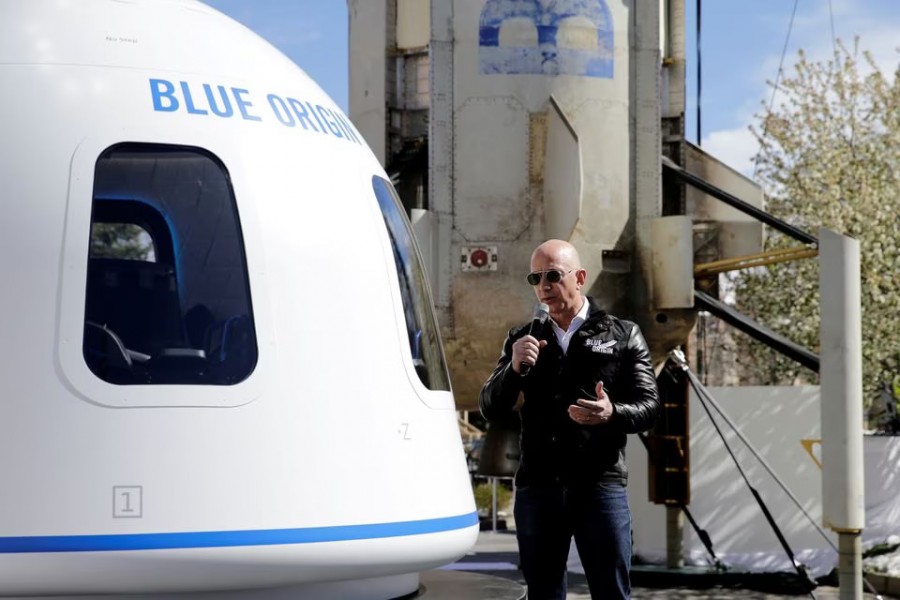Blue Origin, the private space company founded by billionaire Jeff Bezos, was awarded its first interplanetary NASA contract on Thursday to launch a mission next year to study the magnetic field around Mars, the US space agency and company said.
Plans call for Blue Origin's recently developed New Glenn heavy-lift rocket to blast off with NASA's dual-spacecraft ESCAPADE mission in late 2024 from the Cape Canaveral Space Force Station in Florida, the agency said.
It will take the identical twin ESCAPADEs, short for Escape and Plasma Acceleration and Dynamics Explorers, about 11 months to reach Mars orbit, where they will capture data from the planet's magnetosphere and its interactions with solar radiation, reports Reuters.
New Glenn, with a reusable first stage designed to be flown on at least 25 missions, is named for pioneering NASA astronaut John Glenn, who became the first American to orbit Earth in 1962.
Blue Origin has flown previous NASA missions with its smaller, suborbital New Shepard rocket, which can carry research payloads on short, microgravity trips to the edge of space and back.
But ESCAPADE gives Blue Origin another line of business with a valuable government customer as Bezos' rocket company begins to compete with SpaceX, United Launch Alliance and other major players for flights to low-Earth orbit and beyond.
Blue Origin, known for its astro-tourism business for wealthy customers and celebrities, is one of 13 firms NASA chose last year for its Venture-class Acquisition of Dedicated and Rideshare missions (VADR) program.
VADR essentially is intended to spur private development of private space launch vehicles by assigning lower-cost NASA science missions to new rockets with an unproven record and higher chance of failure.
In doing so, NASA takes on greater risk by using promising upstart rocket services with whom commercial customers might be unwilling to fly initially.
NASA says the maximum possible price for a launch under the VADR program is $300 million. The space agency declined to disclose the value of the ESCAPADE contract, calling such information proprietary. Blue Origin also declined to discuss financial details.
Although ESCAPADE marks NASA's first flight on New Glenn, that booster has been selected to carry payloads to orbit for three leading satellite operators: Eutelsat, JSAT and Telesat, according to Blue Origin.
The company also has said Amazon's Project Kuiper satellite constellation has chosen New Glenn for 12 launches over five years.


